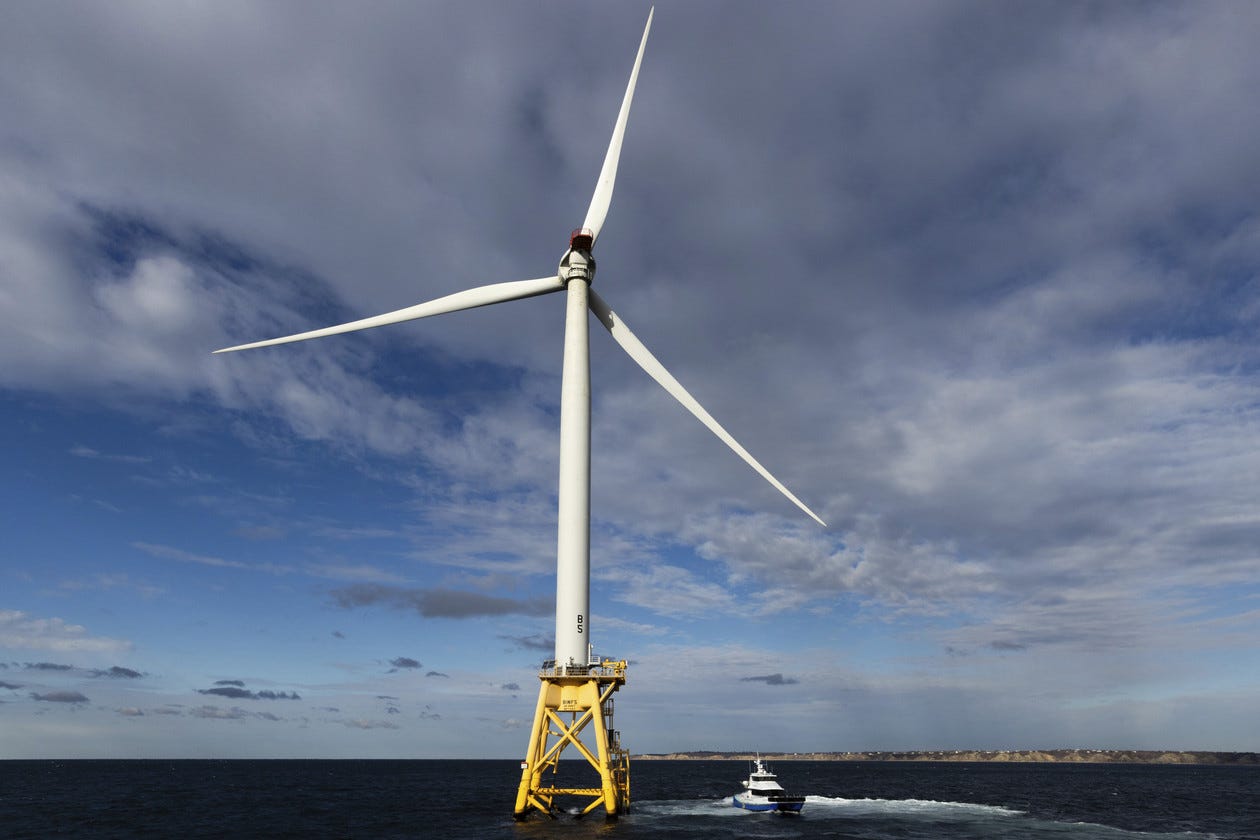Coastal Virginia Offshore Wind Pause
Coastal Virginia Offshore Wind Pause
By Steve Haner
When your friends think you wrong and your opponents are saying nice things, a reevaluation of your position might be in order. Did it. It was still correct for the Thomas Jefferson Institute for Public Policy to put Virginia’s energy ratepayers first and express concern for the financial harm they might suffer if a wind turbine project gets cancelled.
Dominion Energy Virginia’s offshore wind project, now with a $10.7 billion price tag (not including decades of profit), is about half complete. A call to pause and perhaps cancel it was issued by a consortium of wind energy opponents from multiple states. President Donald Trump’s Executive Order has called for a review of pending projects, but it apparently did not pause Dominion’s and three other projects already under construction.
The Thomas Jefferson Institute for Public Policy was invited to sign the petition to pause them all and did not. It then explained the rationale to Virginians, mainly to be sure they fully understood that the stranded costs and other financial impacts of any cancellation could land entirely on them. Here is the report we made, which also links to the letter sent to Trump’s Department of Interior.
There was a bit of an explosion on the right for us not moving in lockstep, but it was uncalled for. We did not dispute the underpinnings of the petition to Interior, and the complaints about how President Joe Biden’s team gamed the system in favor of wind approvals may be totally valid. The concerns about harm to marine mammals may be totally valid.
That was followed by a round of applause from the left, also largely uncalled for. This article appeared in a publication that appears to be a wind energy booster, delighting in the apparent rift among offshore wind skeptics. The author lumps the Thomas Jefferson Institute in with Heritage Foundation and Project 2025. We had no hand in the drafting of that. Her lumping us in the “all of the above” camp is a major oversimplification, given that often includes pipedreams about hydrogen and carbon capture.
The decision on what to do with a half- or more than half-finished project is an economic call. Yes, offshore wind is, as I told the reporter (and she didn’t quote me) too much money for too little energy. But to cancel it now or soon would put the following risks on Dominion’s 2.6 million Virginia customer accounts:
The stranded cost of the project to date, about $6 billion as of the end of 2024, plus any cancellation penalties from suppliers and the cost of removing what has been done.
Under Virginia’s fantasy-based Virginia Clean Economy Act, that project was set to create about 8 to 10 million annual renewable energy certificates for Dominion to retire. Cancel it (or should the project just fail, as it might) and the ratepayers will have to pay for that many RECs from elsewhere or pay a “deficiency payment” (a.k.a. alternative compliance cost.)
As low as its capacity factor might be, the 2.6-gigawatt project should run well at times. Dominion is still facing a rising wave of demand because of the data center explosion so the power will have to come from somewhere else. Again, the Virginia Clean Economy Act precludes the most logical hydrocarbon alternatives.
Well before that letter to the Trump Interior Department started to circulate for signature, the triple whammy facing Dominion’s customers was clear. Recognizing that, we have no regrets about sending up a rocket to inform people, and to cause the policy makers to move with caution before slamming a population already paying too much for power. Dominion’s project is the only one owned directly by a utility and thus puts ratepayers at such risk.
While it probably is the correct economic call to finish this first Dominion project (and an analysis could demonstrate otherwise), Dominion has two more planned and both of those were paused for review by the Trump Executive Order. Those leases are in jeopardy. Killing them also appears currently to be the best move for Virginia ratepayers.




